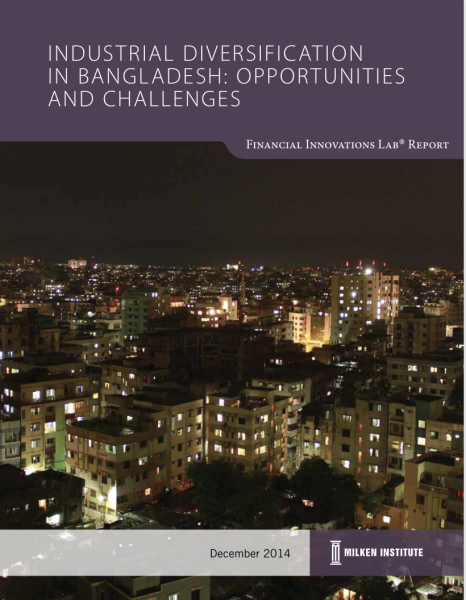
Industrial Diversification in Bangladesh: Opportunities and Challenges
Like other emerging and developing countries, Bangladesh has leveraged its abundant and low-cost labor to spur economic growth and attract domestic and foreign investment. Over the past decade, the country has positioned itself to take control of a large segment of global trade—in particular, the ready-made garment (RMG) market, where it is second only to China in global export to European and U.S. buyers.
However, like its predecessors in the emerging markets, Bangladesh faces challenges to economic growth. It must continue its efforts to strengthen and modernize the economy through diversification of industry sectors; and it must develop a highly skilled workforce—its human capital—to keep pace with that diversification. Training and education will transform an unskilled and semi-skilled workforce into one that is able to support emerging sectors, such as information technology, pharmaceuticals, and shipbuilding.
To address these issues, the Milken Institute, in partnership with the Bangladesh Enterprise Institute, convened a two-day Financial Innovations Lab®, “Industrial Diversification in Bangladesh: Opportunities and Challenges.” The Lab took place August 12–13, at the Singapore Management University, and brought together representatives of government, investors, and leaders in finance and economic development to analyze best practices and provide recommendations for building on the country’s current capital and labor strengths.
